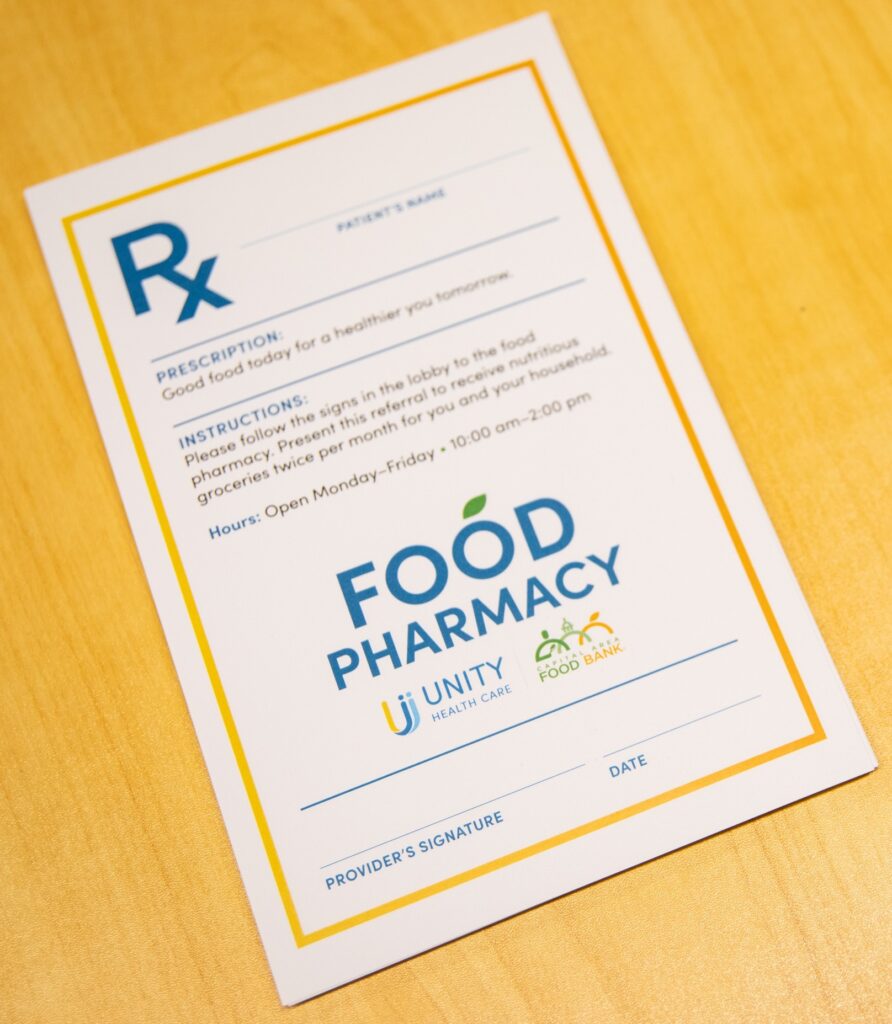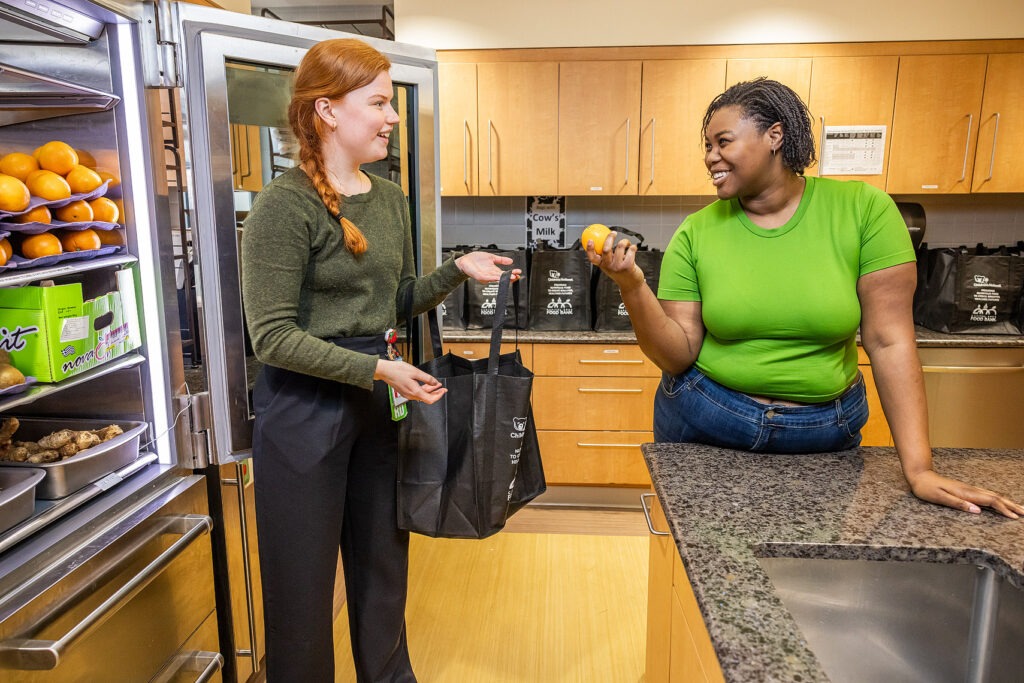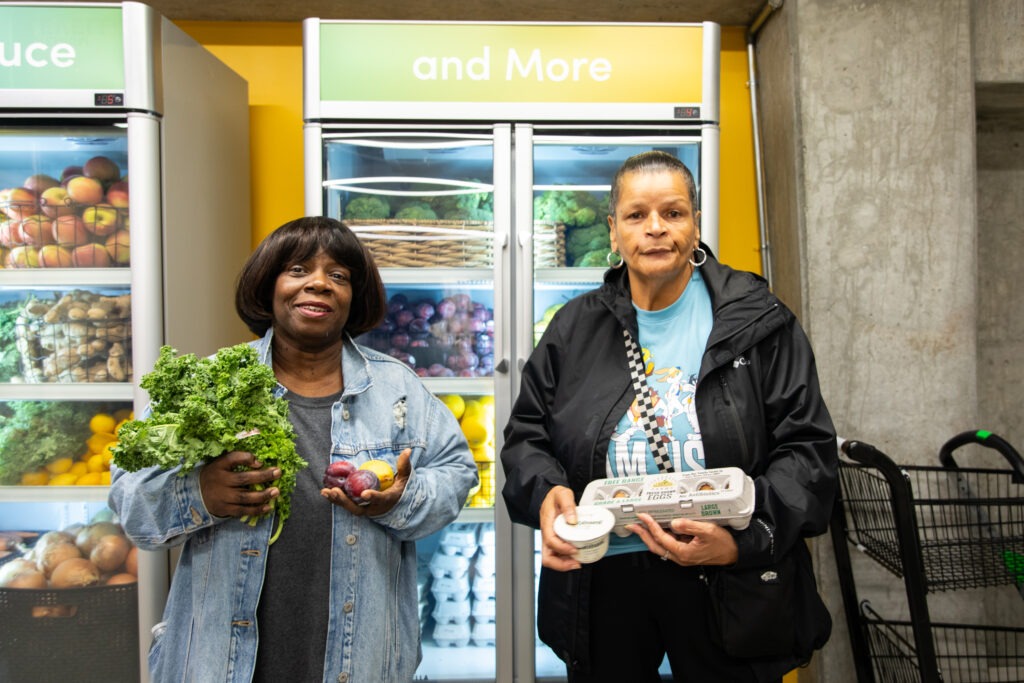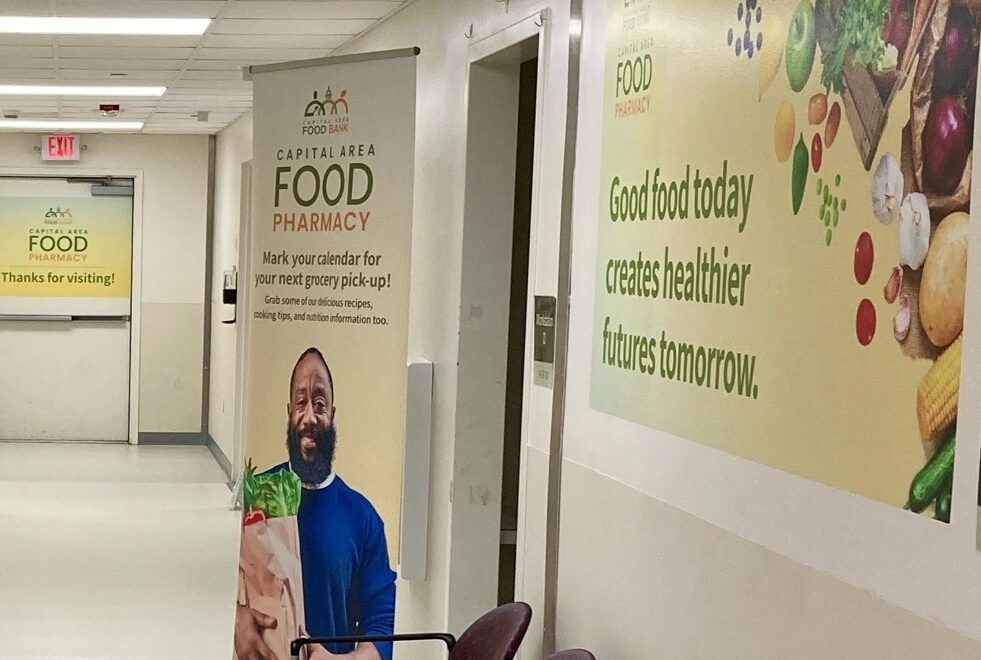It takes more than food to solve hunger. We’re working with health care institutions to address health disparities and food insecurity in our region’s most in-need communities.
Good food means good health
Having access to healthy food throughout your life makes all the difference. With enough healthy food, school-age children are better prepared to focus on schoolwork; adults are absent from work less often; pregnant women have fewer birth complications; and seniors reduce their risk for adverse health conditions. By contrast, people who experience food insecurity have a higher risk of diabetes, high blood pressure, and asthma.
By working with our partners to integrate nutritious food directly into doctor’s offices and hospitals, we’re able to assist people across our region in preventing and managing diet-related illnesses.
Our Food+Health Programs
 In order to pair food with medical care, the Capital Area Food Bank has established programs known as “food pharmacies” in partnership with hospitals and clinics across the region. If a patient at one of these healthcare facilities screens positive for food insecurity based on their answers to a brief questionnaire, they receive a “prescription” to the on-site food pharmacy.
In order to pair food with medical care, the Capital Area Food Bank has established programs known as “food pharmacies” in partnership with hospitals and clinics across the region. If a patient at one of these healthcare facilities screens positive for food insecurity based on their answers to a brief questionnaire, they receive a “prescription” to the on-site food pharmacy.
For each of our food pharmacy programs, the food bank’s dietitians create a menu of foods that are responsive to patient health needs. The food bank then provides those foods to the clinical partner to keep on site and distribute to patients.
These programs not only are providing nutritious food that supports our neighbors in leading healthy, active lives – they’re also contributing to a growing national body of research showing the role that food can play in medical care.
How Food+Health supports the Food Is Medicine movement
Partnership with Children’s National

We launched our first food pharmacy in October 2021 at Children’s National Hospital, serving patients at the hospital’s Diabetes Care Clinic. Every time food-insecure patients have a doctor’s appointment, they can take home 30 to 40 pounds of fresh produce and shelf-stable foods, including proteins and whole grains. In addition to groceries, families also receive recipe cards and other nutritional assistance to help them better manage their health conditions.
Clinicians say the food pharmacy has been a popular option for patients, who will request to schedule their appointment at the main hospital so they can receive groceries through the food pharmacy.
This partnership expanded in the summer of 2024, with a second food pharmacy added at the hospital’s primary care clinic in Columbia Heights.
In addition to the on-site food pharmacies, the food bank is partnering with Children’s National on a research study examining the impact on patients who receive home-delivered groceries for a year. The data gathered will examine how this affects participants’ health conditions, their consumption of healthy food, and their overall healthcare costs.
Partnership with Unity Health Care

In September 2024, CAFB launched the first of two food pharmacies in partnership with Unity Health Care, at Unity’s East of the River Health Center. Primarily serving older adults managing hypertension, diabetes, and obesity, the food pharmacy provides patients with 40 pounds of food twice a month. They receive shelf-stable foods fresh produce and protein, focusing on low-sugar, high-fiber, and nutrient-rich options.
Through this partnership, we will be able to serve the same seniors for five years and Unity will track their health outcomes.
Partnership with UMMS

Our latest partnership with the University of Maryland Medical System (UMMS), which launched in October 2024, enables us to reach another critical population: food insecure pregnant women in high-risk pregnancies. Patients are referred by their physician to the food pharmacy on UMMS’s Largo campus, where they can receive fresh produce as well as shelf-stable groceries.
In addition to tracking the impacts of healthy food during pregnancy, this location also is reaching adult patients with other conditions, including hypertension, pre-diabetes, diabetes and obesity.
It takes more than food
The Capital Area Food Bank is launching multiple Food+ programs to help find solutions for hunger by addressing its root causes. If your organization offers services to people in need or would like to help make these programs possible, please get in contact with Susan Topping at stopping@capitalareafoodbank.org.

